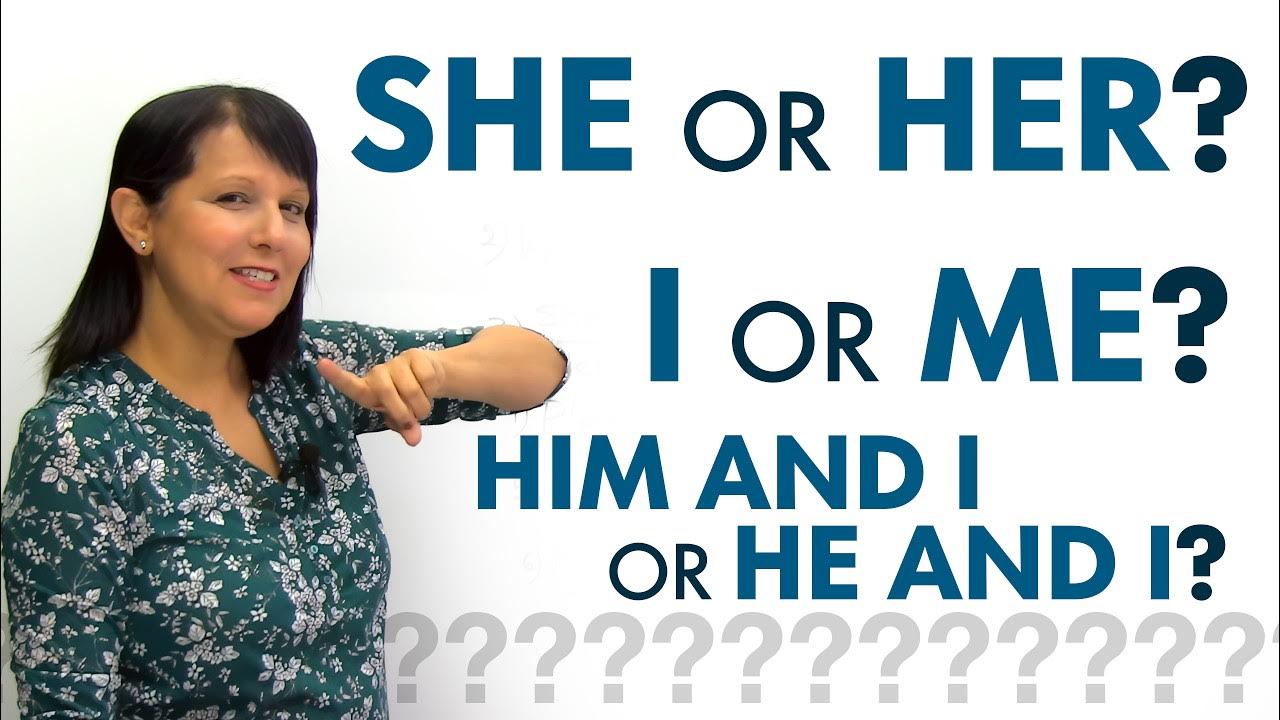English Grammar: Which prepositions go with these 12 adjectives?
Summary
TLDRIn this engaging lesson, Rebecca from engvid.com teaches viewers about the critical relationship between adjectives and prepositions in English grammar. She explains how these small but powerful words form combinations that convey meaning, highlighting common phrases like 'interested in,' 'married to,' and 'responsible for.' Through clear definitions and practical examples, she encourages learners to practice using these structures correctly. The lesson includes a quiz to reinforce understanding and emphasizes the importance of applying these concepts to real-life situations, making grammar not only accessible but also relevant for everyday communication.
Takeaways
- 😀 Prepositions are essential in English, helping to show relationships between words.
- 📚 An adjective describes a noun, while a noun can be a person, place, thing, or idea.
- 📝 Learning adjectives with their corresponding prepositions can prevent common mistakes.
- ⚽ Example sentences demonstrate the combination of adjectives and prepositions: 'I'm interested in sports' or 'I'm disappointed in the results.'
- 📈 The use of gerunds (verbs ending in -ing) is crucial after certain adjectives, such as 'interested in improving my English.'
- 💔 'Disappointed in' and 'involved in' are common expressions that require careful attention to prepositions.
- 💍 Adjectives like 'married to,' 'addicted to,' and 'related to' highlight specific relationships and connections.
- 🌍 Common expressions with 'for' include 'famous for,' 'responsible for,' and 'sorry for,' emphasizing accountability and reputation.
- 😨 'Afraid of,' 'proud of,' and 'capable of' highlight feelings of fear, pride, and ability, respectively.
- 🎓 Engaging with the material personally by using these expressions in context helps solidify understanding and memory.
Q & A
What is the purpose of the lesson presented by Rebecca?
-The purpose of the lesson is to teach students about the relationship between adjectives and prepositions, specifically how to correctly use them in sentences.
What are some common prepositions mentioned in the lesson?
-Some common prepositions mentioned include in, on, at, for, from, and of.
How does Rebecca define an adjective?
-Rebecca defines an adjective as a word that describes a noun, providing more information about it.
What is a gerund, and how is it used in the context of the lesson?
-A gerund is a verb form that ends in -ing and functions as a noun. It is used after certain adjectives and prepositions, such as in 'interested in swimming.'
Can you provide an example of an adjective followed by a preposition and a noun?
-An example would be 'I'm interested in sports,' where 'interested' is the adjective, 'in' is the preposition, and 'sports' is the noun.
What mistakes do learners often make regarding adjectives and prepositions?
-Learners often use the wrong prepositions with adjectives, such as saying 'married with' instead of 'married to.'
What strategies does Rebecca suggest for remembering these adjective-preposition combinations?
-Rebecca suggests writing them down, practicing them in personal sentences, and applying them to one's own life to create stronger mental connections.
What are some examples of adjective-preposition combinations that end with 'to'?
-Examples include 'married to,' 'addicted to,' and 'related to.'
How does Rebecca encourage students to engage with the material?
-She encourages students to repeat the phrases after her and to think of personal examples to reinforce their understanding.
What resources does Rebecca offer for further practice?
-Rebecca directs students to the engvid.com website for quizzes and mentions an online course designed to help correct grammar, vocabulary, and pronunciation mistakes.
Outlines

Cette section est réservée aux utilisateurs payants. Améliorez votre compte pour accéder à cette section.
Améliorer maintenantMindmap

Cette section est réservée aux utilisateurs payants. Améliorez votre compte pour accéder à cette section.
Améliorer maintenantKeywords

Cette section est réservée aux utilisateurs payants. Améliorez votre compte pour accéder à cette section.
Améliorer maintenantHighlights

Cette section est réservée aux utilisateurs payants. Améliorez votre compte pour accéder à cette section.
Améliorer maintenantTranscripts

Cette section est réservée aux utilisateurs payants. Améliorez votre compte pour accéder à cette section.
Améliorer maintenantVoir Plus de Vidéos Connexes

Writing & Punctuation: How to use a COMMA correctly in a complex sentence

Upgrade your writing with APPOSITIVES

How to say the time in English

WHO’S or WHOSE?

No more mistakes with MODALS! 3 Easy Rules

Comparative & Superlative Adjectives in English: Complete Guide

Confusing Subject & Object Pronouns: HE or HIM? I or ME? SHE AND I or HER AND I...?
5.0 / 5 (0 votes)
